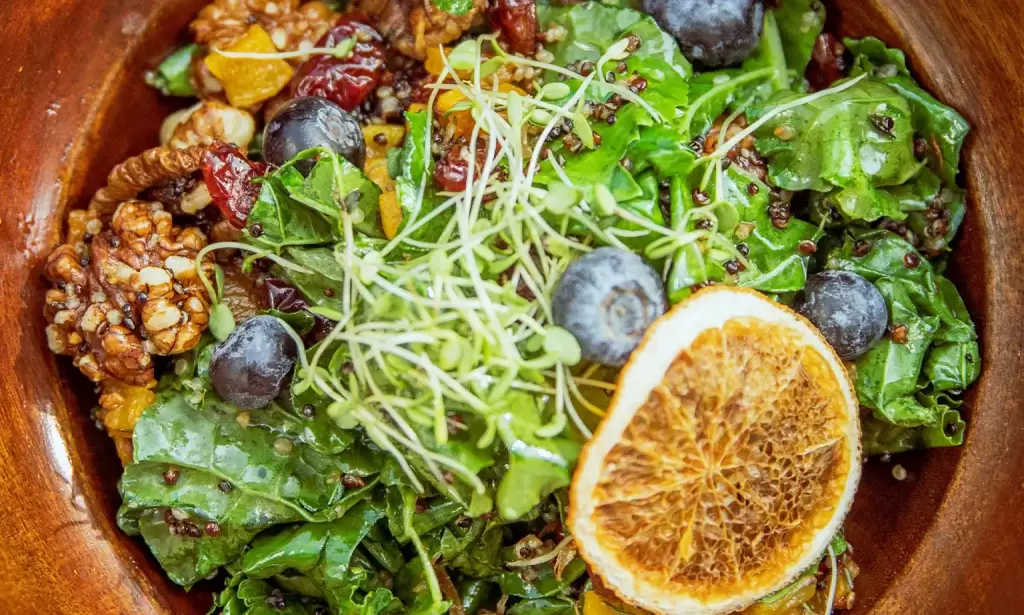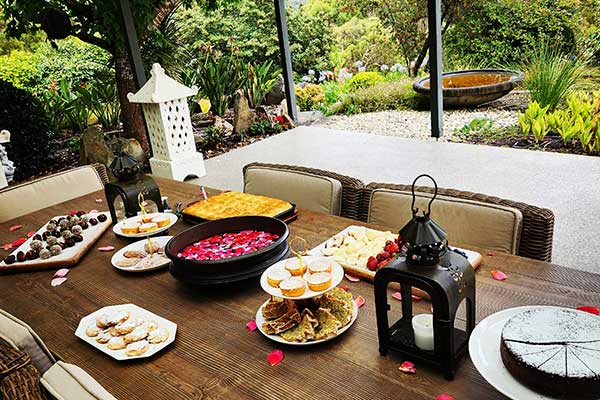
The modern world is speeding up, with people constantly moving at breakneck speeds. But what if we could slow down, appreciate life at a different pace, and connect with ourselves, our food, and the environment in a meaningful way? Enter culinary wellness retreats — a new form of travel that combines the benefits of ethical dining with the philosophy of slow travel. These retreats offer the opportunity to immerse oneself in the local culture, savor nutritious food, and rejuvenate both mind and body.
The Rise of Culinary Wellness Retreats
The Intersection of Food, Wellness, and Travel
Culinary wellness retreats are becoming a major trend in the tourism industry. But what makes these retreats so special?
- A Holistic Experience: Unlike traditional vacations where the focus is on sightseeing, culinary wellness retreats emphasize food as an integral part of wellness. It’s not just about eating; it’s about how food nourishes your mind, body, and spirit.
- The Integration of Slow Travel: These retreats take the slow travel philosophy and integrate it with culinary experiences, encouraging guests to take time, reflect, and immerse themselves in the culture.
Ethical Dining: What Does It Really Mean?
Sourcing: The Heart of Ethical Dining
Ethical dining is all about ensuring that the food you eat comes from sustainable, environmentally-friendly sources. But how is this achieved?
Farm-to-Table Dining
- Supporting Local Farmers: Farm-to-table dining allows guests to experience local, seasonal produce while supporting small-scale farmers. The emphasis is on fresh, organic ingredients that haven’t traveled long distances, reducing the carbon footprint.
- Seasonal Ingredients: Meals are crafted using what is available locally, and menus change based on the seasons, which enhances both flavor and nutrition.
The Importance of Sustainability
- Reducing Environmental Impact: Many culinary wellness retreats focus on minimizing food waste, reusing leftovers, and using compostable packaging.
- Water and Soil Preservation: Retreats often emphasize sustainable farming practices, such as water conservation and natural pest control, reducing harm to the environment.
Animal Welfare and Plant-Based Menus

As ethical dining becomes more popular, animal welfare is also a primary concern. Guests at wellness retreats are often offered plant-based alternatives or ethically sourced animal products.
Plant-Based Menus
- Health and Environmental Benefits: Many retreats offer vegan or plant-based meals, emphasizing the health benefits of a plant-centric diet and its lower environmental impact.
- Cultural Plant-Based Traditions: Some retreats highlight the importance of local plant-based dishes, integrating them into the wellness experience.
Ethical Sourcing of Animal Products
- Humane Treatment of Animals: When animal products are used, they are sourced from farms that prioritize animal welfare and natural living conditions.
- Reduction in Meat Consumption: Some culinary wellness retreats encourage guests to reduce their meat intake, promoting plant-based options instead.
Slow Travel: A Mindful Journey
Defining Slow Travel: Quality Over Quantity
Slow travel emphasizes the importance of quality experiences rather than rushing through a destination. This philosophy encourages travelers to slow down, savor every moment, and make deep connections with the places they visit.
Why Slow Travel Works
- Less Stress: The focus is on relaxation, deep reflection, and slow exploration.
- Meaningful Interactions: Slow travel fosters genuine connections with locals, allowing you to learn about their culture and food traditions.
Slow Travel and Culinary Exploration: The Perfect Pairing
Slow travel goes hand-in-hand with culinary experiences. The slower pace allows guests to fully absorb the local food culture, explore farmer’s markets, and attend cooking workshops.
Tasting the Region’s Essence
- Exploring Regional Flavors: Immersing yourself in local cuisine helps you connect with the essence of the destination.
- Learning From Local Experts: Cooking classes and food tours provide hands-on learning, giving guests the chance to explore the traditions behind each dish.
The Health Benefits of Slow Travel
Slow travel offers more than just a way to disconnect from the hustle and bustle. It also promotes mental, physical, and emotional well-being.
Lower Stress Levels
- Mindful Travel: A slower approach helps reduce travel anxiety, allowing you to focus on the present moment and recharge.
- Deep Relaxation: By disconnecting from technology and slowing down, travelers can engage in mindful activities, such as yoga and meditation, that promote mental wellness.
Physical Health
- Engaging with Nature: Many retreats are located in natural environments, such as forests or beaches, which promote physical activity and outdoor exploration.
- Culinary Nutrition: Focused on wholesome, nutrient-dense meals, culinary wellness retreats help travelers maintain optimal health.
Culinary Wellness Retreats: A New Way to Travel
What to Expect at a Culinary Wellness Retreat
A typical culinary wellness retreat offers a unique combination of culinary education and wellness practices. But what exactly does a retreat experience look like?
Interactive Culinary Workshops
- Farm Visits: Many retreats include visits to local farms, where guests can see where their food is grown and learn about sustainable practices.
- Cooking Classes: Guests are often invited to join in cooking workshops, where they can learn how to prepare healthy, local dishes using fresh ingredients.
Holistic Wellness Activities
- Yoga and Meditation: Combining mindful eating with mindfulness practices, retreats often feature yoga sessions and meditation practices to help guests center themselves.
- Detox and Nutrition Plans: Some retreats offer personalized detox or wellness diets aimed at improving health, reducing stress, and restoring balance.
Locations for Culinary Wellness Retreats
Culinary wellness retreats can be found all over the world, offering diverse experiences based on the local culture, climate, and food systems.
Italy
- Tuscany’s rolling hills and lush vineyards are the perfect setting for food lovers seeking wellness, focusing on organic, locally sourced produce and traditional Italian dishes.
Bali, Indonesia
- Bali offers an idyllic setting with its emphasis on organic food production and spiritual wellness. Yoga and plant-based dining come together in this wellness destination.
Napa Valley, USA
- Famous for its wine country, Napa Valley hosts culinary retreats centered around farm-to-table dining, wine pairings, and a holistic approach to wellness.
Integrating Local Culture Into Culinary Wellness
Celebrating Regional Cuisine
One of the main attractions of culinary wellness retreats is the chance to dive deep into the food culture of the destination. Guests are encouraged to not only taste food but to understand its cultural significance.
Authentic Food Experiences
- Regional Specialties: Every region has its own unique dishes, many of which are tied to the local climate, agriculture, and cultural traditions.
- Learning from Locals: Cooking classes often feature local chefs who teach guests about the historical and cultural aspects of each dish.
Cultural Immersion Through Food
Immersing oneself in the food culture of a destination is one of the best ways to truly understand its people and traditions. Culinary wellness retreats create opportunities for cultural exchange.
Food as a Story
- Storytelling Through Dishes: Meals are more than just food; they are often stories told by local chefs or farmers, reflecting the history and values of the region.
- Experiential Travel: Whether it’s foraging for wild herbs or learning how to prepare a traditional dish, guests have a chance to truly experience the culture through food.
The Future of Culinary Wellness and Slow Travel
The Growing Demand for Ethical Dining and Sustainable Tourism
As travelers become more conscious of their environmental impact, ethical dining and sustainable travel have become more important than ever. The future of tourism is leaning towards ethical, eco-friendly, and socially responsible practices.
Sustainability Trends
- Increased Focus on Local Sourcing: Expect to see even more emphasis on supporting local, sustainable food sources.
- Carbon Conscious Travel: Future culinary wellness retreats will focus on reducing travel carbon footprints, promoting eco-friendly practices in all areas of the retreat experience.
How Culinary Wellness Retreats Will Evolve
The future of culinary wellness retreats looks promising, with an increasing demand for personalized, authentic, and sustainable experiences.
- More Diverse Cuisines: We may see culinary wellness retreats explore a broader range of global cuisines, promoting greater cultural exchange and diversity.
- Technology Integration: Digital tools may be used to enhance the experience, such as food-tracking apps, virtual cooking classes, and more.
Conclusion
Culinary wellness retreats represent a transformative way to travel, eat, and live mindfully. By combining ethical dining, slow travel, and holistic wellness, these retreats offer an experience that nourishes the body, mind, and spirit. As more travelers seek deeper connections with food, culture, and sustainability, culinary wellness retreats are poised to lead the way in redefining how we travel and eat in the modern world.
